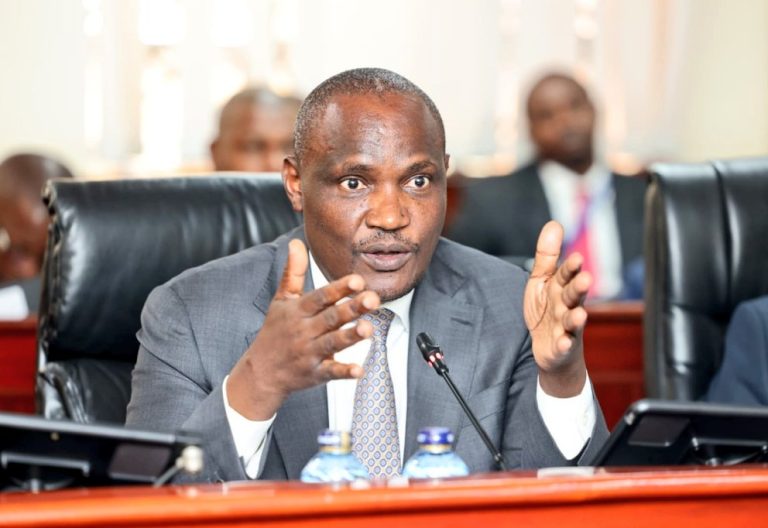Treasury Cabinet Secretary John Mbadi has appointed former Auditor General Edward Ouko as the new Chairperson of the Anti-Money Laundering Advisory Board.
The appointment, announced through a Gazette Notice dated September 19, 2025, will see Ouko serve a three-year term under Section 49(1)(a) of the Proceeds of Crime and Anti-Money Laundering Act (Cap. 59A).
“The Cabinet Secretary for the National Treasury and Economic Planning appoints Edward Ouko (FCPA) to be the Non-Executive Chairperson of the Anti-Money Laundering Advisory Board, for a period of three years, with effect from 19th September 2025,” the notice stated.
In a separate notice, Mbadi also named Ouko as a member of the same board for a similar term under Section 49(1)(h) of the Act.
Strengthening Financial Oversight
The Anti-Money Laundering Advisory Board plays a critical role in guiding Kenya’s strategy against money laundering and the financing of terrorism. It works in collaboration with government agencies and regulators to enhance compliance, financial oversight, and enforcement mechanisms.
Ouko, a Fellow of the Institute of Certified Public Accountants of Kenya, previously served as Auditor General. During his tenure, he earned recognition for his strong stance on accountability and transparency in public finance management. His appointment comes at a time when Kenya faces heightened scrutiny from global financial watchdogs over illicit financial flows.
Other Key Appointments
Mbadi also extended the term of the Pending Bills Verification Committee until December 31, 2025. The committee is tasked with reviewing and authenticating government pending bills to ensure credibility and transparency in public expenditure.
Meanwhile, Agriculture Cabinet Secretary Mutahi Kagwe appointed Jackline Cherono, Joseph Karioki Ngige, and William Otemba Oyosi as members of the Tea Board of Kenya for a three-year term.
Separately, the Central Bank of Kenya (CBK) issued its 56th Monetary Policy Statement and revoked the licence of Bonto Kenya Money Transfer Limited, citing regulatory provisions.
These latest appointments and policy measures signal the government’s renewed commitment to strengthening governance, financial stability, and institutional accountability.

